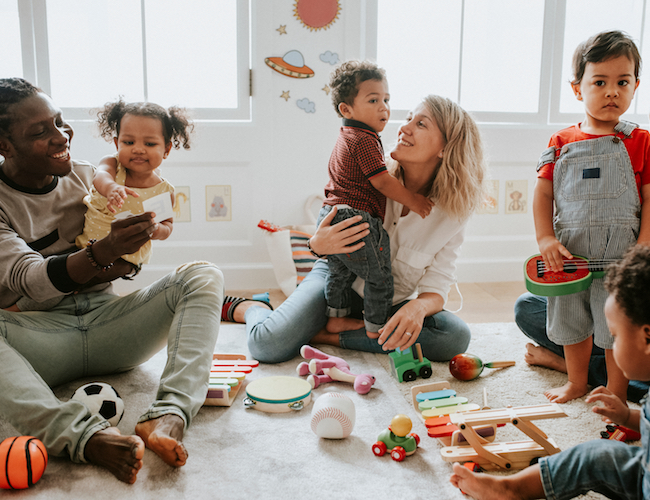Tiny creatures of habit: How to create a toddler routine
Create a routine that’s relaxed but that involves doing many of the same things each day or week with your little one, so they can explore within boundaries that make them feel safe.
A sample toddler schedule which you may find yourself following loosely with your 21-month old is as follows:
07h30 Breakfast
08h00 Get dressed
09h00 Off to play group or independent play at home
11h00 Juice/water and a healthy snack
11h30 Storytime
12h00 Collection from playgroup
12h30 Lunch, followed by naptime
14h30 Wake up, snacktime
15h00 Outside playtime
17h30 Bathtime
18h30 Dinner and bedtime routine
19h30 Lights out (hopefully!)
The months leading up to age two involve mastery of the routine that parents, playgroup teachers and nannies follow. This is why you may find your child has a tantrum if their favourite bowl is in the dishwasher at dinnertime, or the T-shirt they favour is not out of the wash yet when it comes time to getting dressed in the morning.
The importance of consistency in a routine
They will gain a great deal of comfort from choosing a book at bedtime (probably the same one) or bringing their hooded towel to you at bathtime – and may also score an ego-rush when you tell them how clever they are.
A routine helps your child to know what to expect and gives them a sense of being in control of their activities throughout the day, especially when significant changes are afoot – such as moving house or the arrival of a new sibling.
Routines are there to teach your toddler the sequence of life – such as: “We go to the park in the afternoon but can’t stay until sunset, so we will be back tomorrow or next week.” This familiarity with their routine will likely result in cooperation from them.
A child in a routine is unlikely to get overtired or grumpy; they will inherently know that, when it’s time for a nap, mom, granny, grandpa or my nanny reads me a story and I nod off. Or, if out and about on the weekend, I climb into my pram, dad puts a blankie over me and I can have a nap.
Only by age three will your child begin to see that sometimes it’s OK to not follow their usual schedule so closely – such as in the holidays when the routine is more flexible. In general, though, a routine will help your child to thrive and succeed at the milestones that lie ahead. And will also mean that you and your partner have the evening to yourselves once your little one falls asleep after a busy day.
Expert wisdom
According to Sr Cindy Homewood of the Bowwood Baby Clinic Cape Town, a routine which is fairly regular and predictable, is a good idea at this age. “Try not to say the word ‘no’ too often and rather use a deeper tone of voice if your child is doing something wrong,” she says.
And, yes, it is very much the stage of tantrums – the 21-month-old does not have the maturity to control their emotions and tends to find it difficult to calm themself down.
“When they are having a meltdown, reasoning with your child is unlikely to have a positive outcome,” she says. “Instead, try distracting them with something such as, ‘Did I hear a helicopter in the sky?’ or: ‘Is that a kitty under the hedge?’ She’ll likely scamper off to have a look.”
IMAGE CREDIT: shutterstock.com



